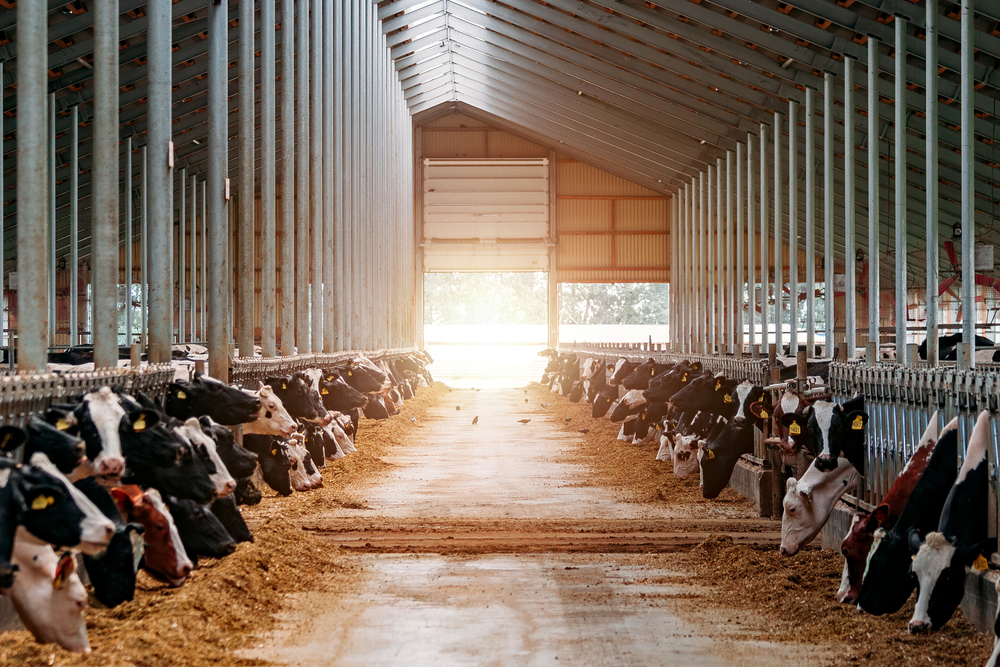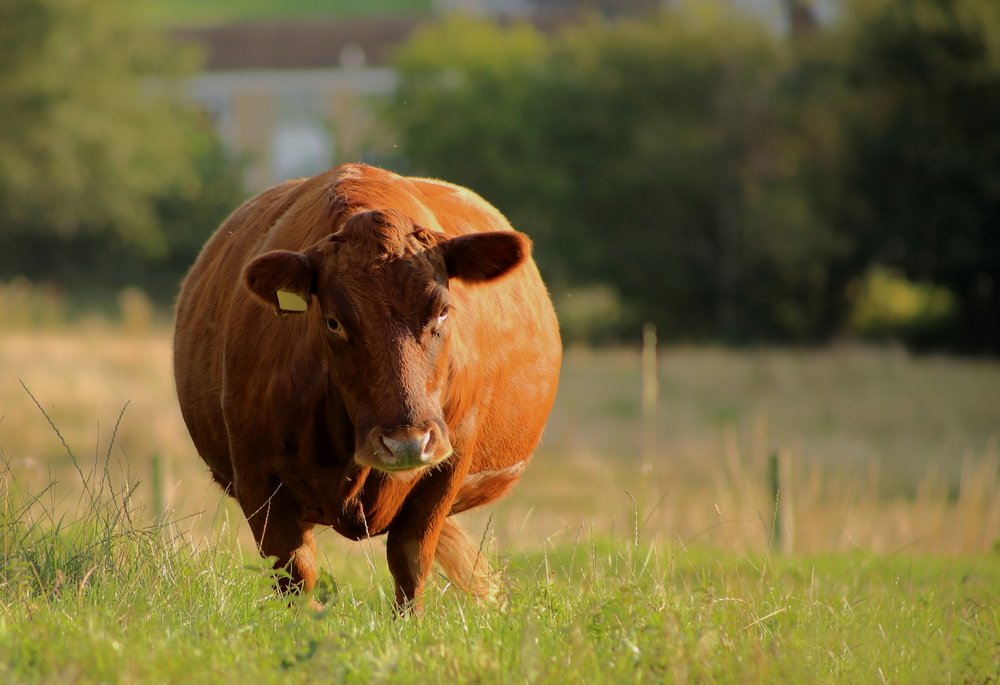Raising a healthy cow is the joy of every farmer. If they’re dairy cows, you know that healthy ones produce good-quality milk. A healthy cow is happier and easier to maintain.
However, cows are not always healthy and can face various health problems. One of these health issues for cows is known as fat cow syndrome. Fat cow syndrome arises from what they eat and can be attributed to poor feed management.
Every ranch works tirelessly to increase milk production and make good returns, and here’s where the problem might begin. Fat cow syndrome comes about when a cow eats an unbalanced diet.
The condition can cause cow depression, reduce milk production, make them nervous, and experience increased body temperature. It also affects the animal’s body fat as the liver and kidneys become too fatty.
But how can one manage “fat cow syndrome” and prevent the cow from adding too much weight? This guide elaborates on all these in detail.
Jump Links
- What is Fat Cow Syndrome?
- Causes of Fat Cow Syndrome
- Effects of Fat Cow Syndrome
- How to Restrict Weight Gain
- Final Thoughts
- Fat Cow Syndrome FAQS
What is Fat Cow Syndrome?
Fat cow syndrome is a disease that affects cows’ health, leaving them vulnerable to infectious and metabolic disorders. The condition arises when the herd is fed on the wrong or unbalanced diet because of poor feed management. If not managed in time, fat cow syndrome can negatively impact the farm’s economy by reducing milk production.
A cow that suffers from fat cow syndrome will show signs such as changes in its walking style as they waddle.
Causes of Fat Cow Syndrome
Various factors can contribute to fat cow syndrome. Some of the leading causes of this condition to watch out for include:
Poor Diet Management
Usually, all the cows in a farm or loose housing receive feed from one pot as they are managed as a group. The farm management is responsible for feeding the cattle and ensuring all the cows eat a balanced diet to grow healthy. However, if the diet is not properly checked and the cows keep feeding on the wrong food, they will become obese.

A cow’s diet should consist of high-quality hay or grass, vitamins, and mineral supplements. These should be given according to the feed rotation and weight. Doing this will help the herd maintain the correct body condition score, which reduces the chances of experiencing fat cow syndrome.
Overfeeding High Energy Foods
Like any other animal, cows also need enough energy to survive and carry out various body functions. The main energy source for these animals is fed with good carbohydrates, proteins, and fat levels, like barley, wheat, corn, or sorghum. However, when overfeeding on high-energy foods like grains and molasses, expect the cows to add weight, leading to fat cow syndrome.
Lack of Exercise or Mobility
Another reason cows can add excess weight is by not exercising or moving around. Remember, cows need to move around to reduce the risk of health problems like obesity. Exercise also improves their respiratory conditions, better milk production, and a shorter recovery time.
Not exercising makes the muscles gain weight, which, in turn, contributes to obesity in cows.
The main reason a cow can fail to exercise or move around is:
Restricted Grazing Space
Without space to graze, the cows will spend their time resting or eating. Overeating contributes to weight gain as it’s equivalent to sleeping the whole day.
Genetic Factors and Breed Variability
A cow’s genetic composition and breed variability can also make the cow obese. Genes carry information that passes from one generation to the next. So expect a calf to resemble its parents in one way or another.
Genetic factors can also make the calf inherit diseases like fat cow syndrome. Moreover, some breeds naturally have big bodies that, when overfed or not exercised, can lead to this problem.
Genetic factors and breed variability most commonly arise because of the following:
Inherited Predisposition
This condition makes a calf inherit the genetics from both parents, which affects their health and body structure. For example, if one or both parents of the cow had weight issues, expect the young one to have the same problem.
Effects of Fat Cow Syndrome
A cow with fat issues develops complications like any other health condition. Some of the implications of overweight cows include the following:
Decreased Productivity
Farmers rear cows intending to get something in return. A dairy cow should produce more milk to increase profits. You must tirelessly increase farm production and make good sales as a farmer.
However, if the cows have fat cow syndrome, it will interfere with their health, reducing production. A stressed cow cannot produce enough milk despite being fed well.
Additionally, lack of exercise affects milk production as it results in stress. Lack of exercise also affects the milk’s protein content and quality.
Increased Risk of Diseases
The fat cow syndrome also makes the cows vulnerable to diseases affecting their health.
The disorders a cow with this condition can have are:
Metabolic Disorders
A cow with “fat cow syndrome” will suffer from metabolic disorders. The cow’s liver or kidney can become fatty due to this problem. A fatty liver is due to the high concentration of hepatic lipogenesis and free fatty acids in the adipose tissues. This results in reduced hepatic oxidation of fatty acids, affecting triglyceride secretion.
Remember, the cow’s body requires choline to transport fatty acids from the liver to the fat deposits. It also facilitates the oxidation of fatty acids by the liver. Lack of this component in the body results in a fatty liver, which affects general health, milk production, and feeding.
Increased Risks of Diseases
A cow with fat cow syndrome also suffers from infectious diseases like mastitis, ketosis, metritis, milk fever, and indigestion. Sometimes, the cow can struggle with depression, weakness, high body temperatures, nervousness, and inappetence.
Reproductive Problems
A cow with fat cow syndrome can also have reduced fertility or poor reproductive performance. If a cow is obese, the AI success rate reduces, meaning it cannot reproduce quickly. Cows that overfeed on proteins or high-energy foods are also prone to infertility.
High protein levels in the body lead to high concentrations of ammonia and urea in the blood. This affects the viability of sperm, embryos, and oocytes, which are important for reproduction.
Mobility Issues and Lameness
An obese cow will find it challenging to move around as the weight is too much for the legs. Too much body weight can make the cow develop joint problems, which affect how it walks. Most cows with this problem waddle because their weight is too much.
How to Restrict Weight Gain
To prevent your cow from developing joint or mobility issues, take action. The best way to achieve this is by:
Reducing Energy Intake
Since high-energy foods cause the cows to suffer, work on it. Either change the type of feed they feed on or reduce their daily portions. Feeding the cows legumes instead of grains is advisable as a high-energy source.
Balance Nutrients Consumption
Cows also need to eat a balanced diet to grow healthy. Ensure their meals have proteins, carbohydrates, and vitamins. Let them also drink adequate water and eat hay instead of grains. Vitamins and mineral supplements can also help.
Let the Cows Exercise
Also, allow the cows to exercise on the ranch to maintain a healthy body weight. Provide ample grazing space where they can move freely while feeding and stretching their muscles. Remember to encourage routine movement for the stabled cows to keep them fit.
Monitoring and Evaluation
Monitor the cow’s weight and evaluate its body conditions to help them maintain the right weight.
This is possible through the following:
Body Condition Scoring
Establish herd management methods to help the cows maintain the correct body condition score. A cow’s best body condition score at the calving stage is 6. The cow should keep this score throughout the drying period.
Introduce Feed Supplements
Feed supplements can also help an obese cow lose weight. Buy vitamin and mineral supplements to meet the cow’s nutritional requirements and stop them from overfeeding on high-energy foods. The supplements can include:
- Phosphorous
- Calcium
- Selenium
- Protein
Use Fat Binders and Enzymes to Boost Digestion
Fat binders and enzymes can also help a cow with fat cow syndrome. Fat binders will prevent the digestive system from digesting fat. Remember, too much fat in the body causes obesity and affects liver function.
Enzymes are also necessary to break down proteins, fats, and carbs into smaller components. This aids the digestion process and weight control.
Final Thoughts
It’s disheartening to see a cow struggling with weight issues while they have little control over their body. That’s why, as a farmer interested in successfully managing your farm, you should take the initiative to prevent fat cow syndrome on the ranch.
Introduce measures like providing a balanced diet, reducing energy intake, and monitoring body condition scores. Feed supplements, fat binders, enzymes, and regular exercise can help a cow maintain a healthy weight.
Fat Cow Syndrome FAQS
How do you control fat cow syndrome?
You need to properly manage the cow’s feed, avoid feeds with excessive fat, and always ensure a balanced diet. You should also provide symptomatic treatment and supportive care for the cow.
How do cows become obese?
The leading cause of obesity in cows is poor diet at parturition and not observing the concentration of intake after peak lactation. Cows with long dry periods also have a high chance of becoming obese.
What puts weight on cows fast?
Cows tend to gain weight faster when they’re overfed on foods high in energy and proteins. Reduced activity levels will also result in excessive weight gain.

